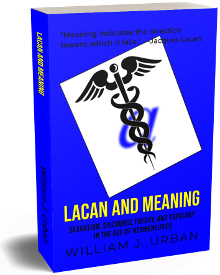LACAN AND MEANING
SEXUATION, DISCOURSE THEORY, AND TOPOLOGY IN THE AGE OF HERMENEUTICS
CHAPTER 1
PETITIONS TO MEANING
— page 14 —
Schleiermacher to leverage the transcendental idealism of Kantian epistemology to combine biblical, juridical and philological hermeneutics into one general form.
Indeed the formidable influence of German Idealism on the Romantic project is readily palpable from Schleiermacher onward. With the advent of Kantian transcendental subjectivity, the possibility of taking responsibility for the manner in which a text is grasped opens up in a way which fully breaks from all previous thinking. Operational here is a new notion of subjectivity which cautions against conceiving an object as independently existing such that our knowledge of it requires appropriately conforming our thinking to it; rather, it is the object itself that must now be conceived as conforming to our thinking. Yet the relation between the subject and the totality of its objects never comes off without a hitch. No doubt attributable to his study of Fichte, Schleiermacher’s work bears witness to a foreign nature to the other which, hermeneutically speaking, condemns the interpreter to asymptotic approaches to the totality of meaning. So when Schleiermacher absorbs the pedagogical practice of explanation by a new notion of understanding broad enough to encompass any text and not just Scripture, this is not a simple overcoming of the dialectic between two externally opposed activities. Rather, what is revealed is an internal obstacle, the Fichtean Anstoß, whose presence compels him to identify two moments within the understanding. On the one hand understanding is the understanding of speech taken from language as rule-bound, yielding up meaning from the linguistic elements of the text as set against its broader grammatical context. Here the individual is ‘subject to’ language. On the other hand is the understanding of speech as a fact in the thinking individual who freely submits language to his own purposes. Here is the ‘subject of’ language. As neither moment further reduces to the other, Schleiermacher’s definition of hermeneutics as the art of understanding is apt. Particularly so for the parallel drawn with the Kantian notion of aesthetic judgment, whereby rules subsuming particulars under universals similarly exist alongside an absence of rules for the application of those rules.
The historical impact of Schleiermacher’s transcendental turn to hermeneutics is difficult to overstate. To be sure his work is often positioned as a touchstone of sorts for debates over interpretive methodology, where a dividing line is drawn according to which moment of understanding is deemed dominant. This is natural enough given that Schleiermacher’s own career appears divided, suggesting that he himself made similar choices. Broadly speaking, if the obscurity of understanding is read as indexing the finite horizon of language, Schleiermacher’s earlier focus on approaching linguistic limits through grammatical interpretation is celebrated. But if this obscurity is more liberally read as inviting assertions of individuality, the focus would instead turn to his later emphasis on the more ‘subjective’ psychological interpretation. Not yet the psychologism of the late 19th century whereby meaning is naïvely
« prev next »full text of Lacan and Meaning
FREE Lacanian-themed puzzles

